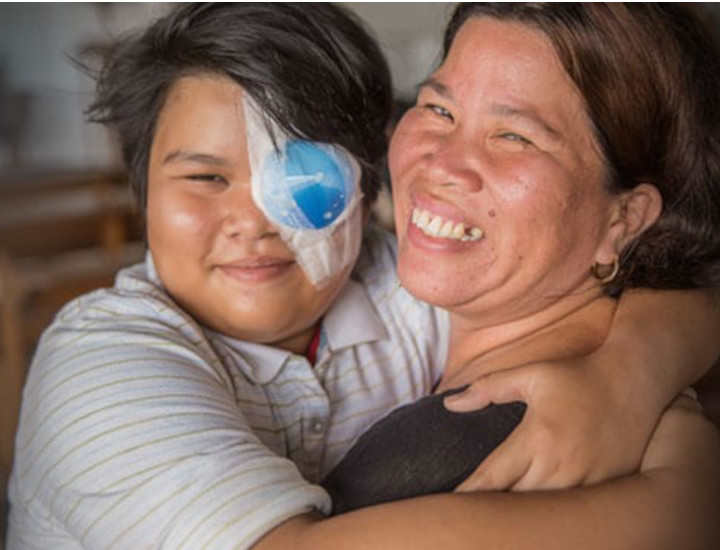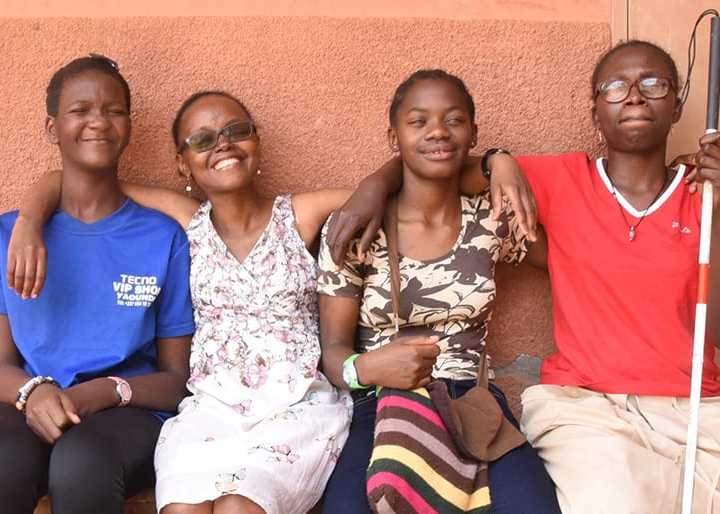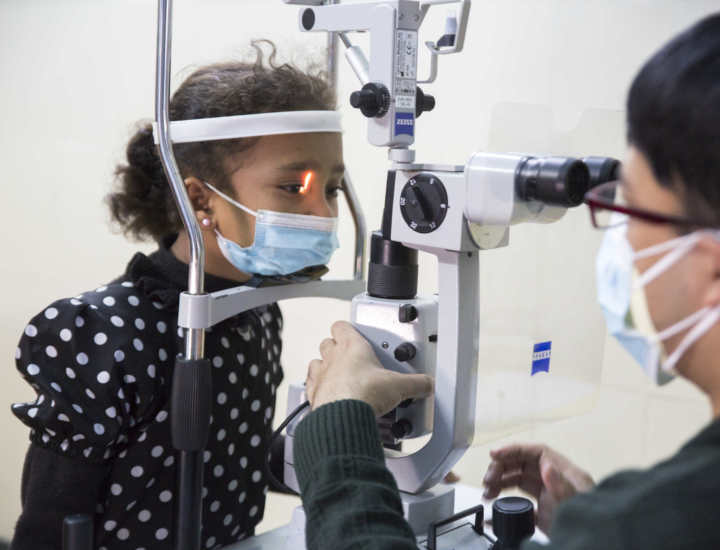Quality eye health services and social support
CBM’s inclusive eye care and health programs consider the holistic needs of people with disabilities, including both their need for quality eye health services and social support.
Our work aims to reduce avoidable visual impairment and blindness and ensure people who are permanently vision impaired can access the most relevant support and opportunities to live life to their full potential.
Historically, vision impairment was understood to be a treatable medical problem or health condition. This meant that the majority of vision and eye health programs focused on prevention and cure for various conditions, especially blinding diseases.
We now know that blindness or vision impairment have more than just a physical impact; they can lead to social exclusion and inequality.
Our inclusive eye health programs
At CBM, we want everyone to benefit from having healthy eyes. To achieve sustainable outcomes, we ensure that our projects are:
- Integrated into national health systems and policies rather than being standalone initiatives.
- Comprehensive from the promotion of healthy eyes to prevention of eye diseases.
- Curative in medical, surgical and optical intervention.
- Facilitating access to rehabilitation services. We ensure our projects are utilising local government and community approaches.
- Strengthen support for people with permanent vision impairment so that no-one is left behind.


Ensuring inclusion
There are other key development areas that CBM considers particularly important to ensure inclusion, such as:
- Understanding the impact of stigma and discrimination against people who are blind.
- Addressing design and accessibility barriers.
- Considering indigenous eye health challenges in remote areas.
- Consulting people with disabilities and their organisations directly.
- Lobbying for government and policy support.
- Connecting people through community-based programs.
- Ensuring barriers for women and girls are addressed.
Eye diseases causing blindness and vision loss
Cataracts are the leading cause of blindness across the world, especially in developing nations. Many cases of cataracts are preventable or treatable with access to the right care.
However, people living in poverty who cannot afford eye care or surgery to treat cataracts are at a higher risk of suffering from poor vision or permanent vision loss.
Neglected Tropical Diseases (NTDs), such as River Blindness, are infections that spread through human contact, insects, contaminated water and soil. They cause some 500,000 deaths every year, and delay the growth and mental development of children. They also cause chronic pain, disfigurement and disability.
Trachoma is the world’s leading infectious cause of blindness. It is also very easy to treat with antibiotics. Without help, it can lead to permanent blindness.
Other common eye conditions or causes of blindness include acute conditions from eye injury or illness, chronic (long-term and often age-related) eye conditions, glaucoma, diabetic retinopathy, congenital eye conditions and genetic/hereditary eye conditions.

